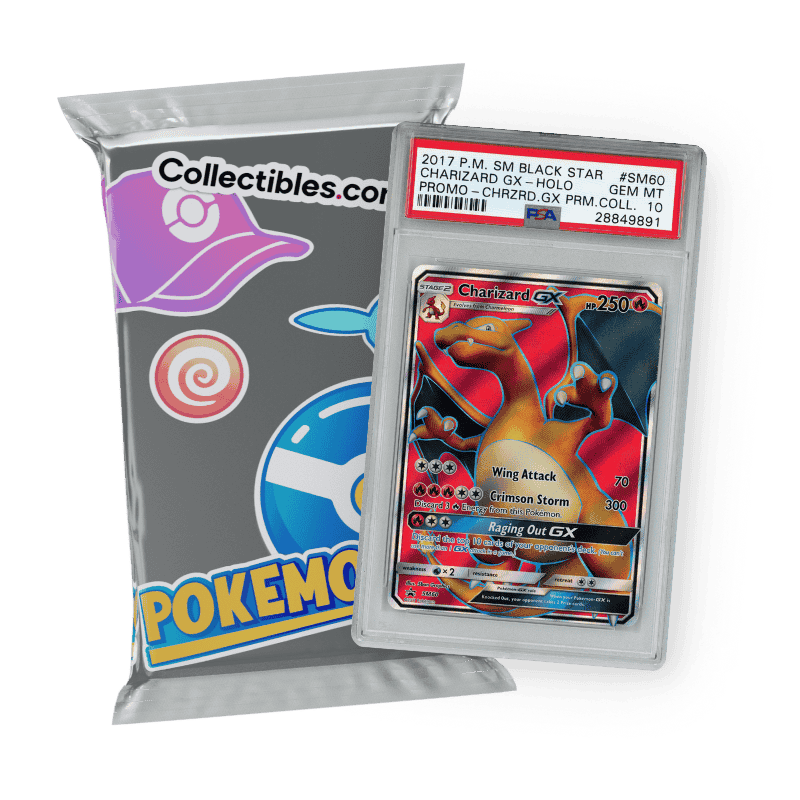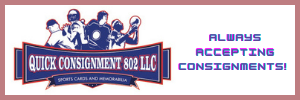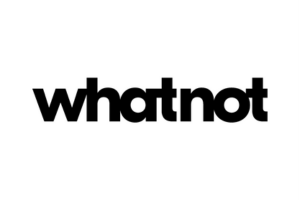
Law of Cards: Leaf v Upper Deck (pt. 2); A Detailed Review
After yesterday's speculation into the first steps of the Upper Deck v. Leaf and Leaf v. Upper Deck cases, we really need to get into the merits of Leaf’s antitrust lawsuit…the ramifications of which stretch beyond Upper Deck and its NHL properties.
Legal aside: You betcha Topps, Panini, MLB, MLBPA, NFL, NFLPA, NBA and NBPA are watching this case.
On November 22, a day after it was sued by Upper Deck, Leaf brought an antitrust lawsuit against Upper Deck. Leaf’s lawsuit claims that Upper Deck illegally stifled competition and hurt Leaf in the hockey trading card market.
Leaf’s claims echo counterclaims raised six years ago by Frontline (a.k.a. Blowout Cards) against Upper Deck. There, Blowout Cards’ antitrust claims broadly focused on Upper Deck’s alleged control of 1) NHL and NHLPA sports trading cards (at a time when Upper Deck and Panini were the only two licensees), 2) NCAA sports trading cards, 3) MLS sports trading cards, and 4) sports trading cards for Upper Deck’s exclusive athletes such as Tiger Woods, Michael Jordan, LeBron James, Wayne Gretzky, Bobby Orr, Gordie Howe and Landon Donovan. The Upper Deck/Blowout Cards case was resolved through a confidential settlement before the issues could be litigated, but, it is notable that this is not the first time Upper Deck’s dominance in hockey cards has been challenged.
This is an oversimplification, but, to prevail in its antitrust lawsuit, Leaf will need to show Upper Deck 1) has market power and 2) misused that market power.
Showing Upper Deck has market power should be easy. The “market” at issue is not trading cards generally; rather, it’s hockey trading cards. Within this market, Upper Deck is the exclusive licensed manufacturer of NHLPA and NHL trading cards. The complaint alleges this gives Upper Deck at least 90% control over the market for hockey player trading cards.
There is no set percentage in defining market power. Normally, it must exceed 50%. Being above 75% is a good place to be. So, alleging 90% market power should be sufficient to show Upper Deck has market power.
Having market power is not bad by itself; there must be more: misuse of that market power to stifle competition.
Legal aside: If you have market power and lawfully stifle competition (like by making a better product no one can compete with), you are OK. There needs to be bad acts to prevent others from obtaining market power.
In the complaint, Leaf raises many potential bad acts. Allegedly:
- In 2017, Upper Deck demanded its distributors sign contracts that “effectively prohibit” Upper Deck’s exclusive distributors from buying or selling others’ products if those products contain current NHL players, or any other player where Upper Deck claims exclusive rights.
- Upper Deck told retail sellers of its hockey player trading cards that if they were to carry potentially competing Leaf products, those retailers could face retribution in the form of lost status and purchasing benefits.
- Exclusive distributors are prohibited from explaining to retailers why they do not carry Leaf products, leading to a perception by retailers that Leaf products are not carried because they are inferior.
- Upper Deck had the NHLPA interfere in Leaf negotiations with one or more NHL players.
- Upper Deck had the NHL forbid Getty Images and other photo licensing agencies from providing photographs to Leaf.
- Upper Deck employees used false internet personas to spread misinformation and negative reviews of Leaf products.
- Upper Deck employees compensated dealers and consumers to spread misinformation and negative reviews of Leaf products.
- Upper Deck employees compensated dealers to discontinue carrying Leaf products.
While this combination of allegations supports stifling of competition through unfair means, the complaint does not provide the who/what/where/when necessary to test the validity of such allegations. If Leaf provides documents and witnesses that prove all the above happened, it has a strong antitrust case, but we won’t know that until discovery commences.
Part of the reason I raise who/what/where/when questions is because Leaf’s complaint focuses not just on the US market, it also makes allegations about the Canadian market. From a damages standpoint that makes sense as the clear majority of hockey cards are sold in Canada. To maximize damages (or the threat of potential damages), you need to bring Canadian sales into the mix. From a liability standpoint, however, it’s unclear how if any of the above actions occurred in Canada and focused only on Canadian card sales, how that would support Leaf’s claim that Upper Deck violated US antitrust law. Because of this, I could see Upper Deck really focusing on “where” these alleged actions occur, because if the actions occurred in Canada, only affected Canadian sales, and did not violate Canadian law, there’s no reason for a US court to deal with them. Or, if such actions did violate Canadian law, they’d require a lawsuit in Canada to seek relief.
I don’t think this is too big of a deal (unless all the above took place in Canada and only affected Canadian sales) because the US market for hockey cards is still viable for the lawsuit…it’s just worth a lot less.
Also, like with Upper Deck’s lawsuit against Leaf (which I wrote is missing the “exclusive athletes” whose rights are being asserted), I believe we have parties missing from this case as well. The monopoly alleged arises not just from Upper Deck’s actions, but also from NHL and NHLPA actions. I understand why Leaf would not want to sue the NHL or NHLPA (it’s bad business suing potential business partners), but when the complaint alleges a conspiracy focusing on license agreements, you should have all the participants in the lawsuit.
Leaf’s focus in this suit is also too narrow. Leaf does not compete with Upper Deck only in the hockey card market; it also competes in the market of Upper Deck’s “exclusive athletes” such as Michael Jordan, Wayne Gretzky, and Bobby Orr. The fact there are no antitrust claims in this area (despite that Blowout Cards’ lawsuit from six years ago targeted these “exclusive athletes”) is a mistake.
Legal aside: Heck, Upper Deck just sued Leaf on this issue! It’d be so easy to allege Upper Deck’s lawsuit focusing on “exclusive athletes” was a BS action designed to improperly stifle competition!
The reason it appears Leaf did not raise “exclusive athletes” antitrust claims at this time is because if it did, Upper Deck would be in a better position in its likely forthcoming first-filed motion to make sure Leaf’s Texas case gets moved into Upper Deck’s California case. I suspect after the first-filed motions are dealt with, we’ll see Leaf’s antitrust claims broaden to also encompass the “exclusive athlete” market.
Also, an interesting tidbit did arise from the complaint: apparently Upper Deck was in talks to buy Leaf’s hockey products (which includes In the Game). As Leaf’s complaint states:
…Upper Deck induced Leaf to provide valuable confidential information regarding Leaf’s business by fraudulently asserting an interest in purchasing Leaf’s hockey assets. Upper Deck’s subsequent actions clearly show its prior “interest” was a false pretext to further harm Leaf.
This nugget might shine a light on both the Upper Deck v. Leaf and Leaf v. Upper Deck lawsuits. Was the offer to purchase Leaf’s hockey business a fishing expedition by Upper Deck to pressure Leaf? Or, does Leaf feel spurned by Upper Deck’s advances?
Or are both lawsuits just part of the negotiation process to raise/lower the price of Leaf’s hockey business?
So, what’s going to happen next?
After the first-filed motion battle, Upper Deck will likely move to dismiss the case. Antitrust claims are expensive, so it’s a good idea to try and end them early. Given the complaint does not allege a who/what/where/when and some of the alleged actions may not be US-based, it’s a good way for Upper Deck to initially test the case.
Legal aside: Now, I say Upper Deck will likely move to dismiss the case, but for some reason, Upper Deck did not move to dismiss Frontline’s antitrust claims in 2011. It’ll be fun at the hearing on the motion to dismiss to ask Upper Deck counsel, “Why move to dismiss now…when you didn’t then?”
Timeline-wise, we’re looking at probably six months or more until we get into the meat of the case, but I doubt the case will go that far. In yesterday’s article, I mentioned that lawsuits are complex negotiations more than anything. With the disclosure that both lawsuits were preceded by buyout negotiations, I now think both companies’ actions are just the latest “negotiation” steps to try and get the price they want. And given how expensive antitrust cases are, I suspect this case will end in less than a year, confidentially…and with the purchase of Leaf’s hockey properties by Upper Deck.
I hope it doesn’t, though, because this is a case that could change the industry. Collectors are frustrated with exclusive licenses. And while this lawsuit focuses on exclusive licenses PLUS other bad actions, it is still an attack on exclusive licenses. It would be nice (although it would take years) to get a decision that called exclusive licenses in The Hobby into question. That way, we’d get more competition, more new ideas, and more variety.
It’s a dream, though. More than 90% of cases settle prior to trial, and this is one that likely falls not only into the settlement category, but into further consolidating hockey cards into one market participant (i.e., a sale of Leaf hockey all but locks up the market for Upper Deck).
But we can still dream.
The information provided in Paul Lesko's "Law of Cards" column is not intended to be legal advice, but merely conveys general information related to legal issues commonly encountered in the sports industry. This information is not intended to create any legal relationship between Paul Lesko and the user. Neither the transmission nor receipt of these website materials will create an attorney-client relationship between the author and the readers.
You should not act or rely on any information in the "Law of Cards" column without seeking the advice of an attorney. The determination of whether you need legal services and your choice of a lawyer are very important matters that should not be based on websites or advertisements.
 | Making purchases through affiliate links can earn the site a commission |





























OscarsCards
I wouldn’t say Upper Deck s@^% but they’ve become pretty boring and very greedy in recent years.
Leaf is trying hard to compete and bring some fresh air in stagnating NHL trading card business which is rally good. I like Leaf hockey products but some of those Leaf card designs are really terrible and it’s mostly because of lack of NHL and NHLPA licensing.
I hope that winners of these lawsuits will be us, the hockey trading card collectors. Which would mean that Leaf should win I guess.